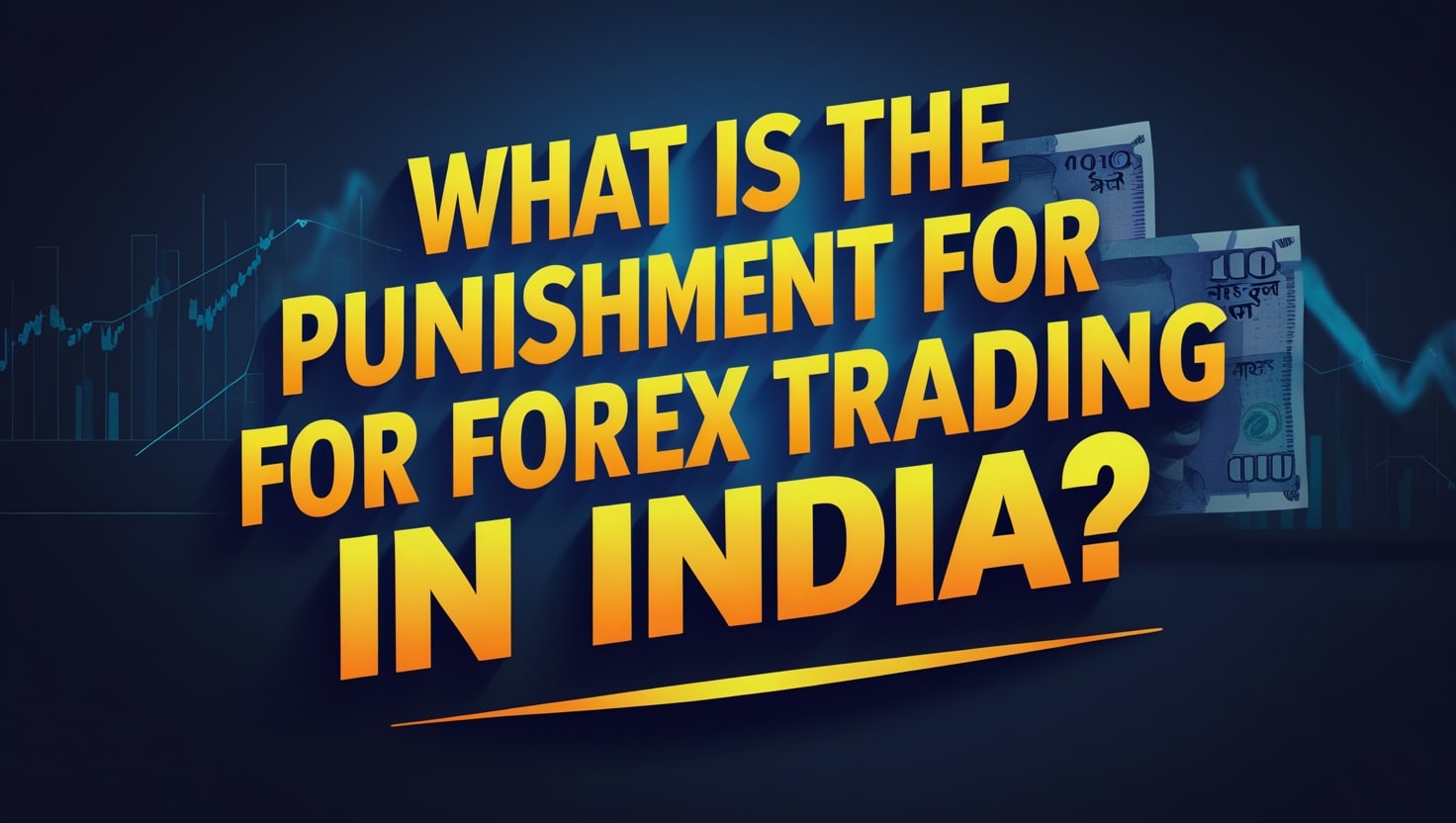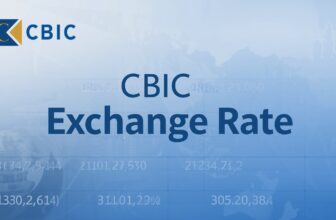
The Indian foreign exchange (forex) market is tightly regulated. Punishment for forex trading in India depends on compliance with the Foreign Exchange Management Act (FEMA) and rules set by the Reserve Bank of India (RBI) and SEBI. Illegal trading – such as using unauthorized platforms, foreign brokers, or prohibited currency pairs – is a punishable offense. Engaging in such activities can lead to steep fines and even jail time under FEMA. By contrast, trading through approved channels has no special penalty.
Indian law only allows currency trading via authorized brokers and exchanges. Using illicit apps or overseas brokers is against FEMA and invites penalties. RBI and SEBI permit only a limited set of currency pairs (see table below) to preserve financial stability. Illegitimate forex dealings can be as risky as “playing with fire,” since they violate strict capital controls and anti-fraud laws.
- Allowed Currency Pairs: USD/INR, EUR/INR, GBP/INR, JPY/INR (INR as base) and three approved cross pairs (EUR/USD, GBP/USD, USD/JPY).
- Illegal Trading: Any forex transactions outside these pairs (for example, USD/JPY or EUR/GBP by a resident) or trading via unauthorized (often offshore) platforms. Such violations breach FEMA regulations and are punishable.
Overview: Punishment for Forex Trading in India
| Trading Aspect | Legal Framework | Violations & Illegal Activities | Penalties & Consequences |
|---|---|---|---|
| 🏛️ REGULATORY FRAMEWORK | |||
| Trading Legality | Fully Legal Through authorized channels with proper compliance | Strictly Prohibited Unauthorized platforms, foreign brokers, unapproved pairs | Legal Trading: No penalties Illegal Trading: FEMA violations |
| Permitted Currency Pairs | INR Base Pairs: • USD/INR • EUR/INR • GBP/INR • JPY/INR Cross Pairs: • EUR/USD • GBP/USD • USD/JPY | Any currency pairs outside the approved list Direct foreign currency trading by residents | FEMA Section 13 penalties apply |
| Authorized Entities | registered brokers exchanges approved intermediaries | • Offshore trading platforms • Unregistered brokers • Foreign exchange services • Unauthorized mobile apps | • Platform blacklisting • Broker license revocation • User account freezing |
| ⚖️ FEMA PENALTIES & PUNISHMENTS | |||
| Primary Financial Penalties | Compliant Trading: Standard taxation only | • Trading via unlicensed platforms • Using prohibited currency pairs • Exceeding RBI limits | Up to 3× transaction amount OR ₹2 lakh (whichever is higher) |
| Continuing Violations | Not applicable for legal trading | • Persistent illegal trading • Repeated platform violations • Ongoing non-compliance | ₹5,000 per day for each day of continued violation |
| Criminal Prosecution | No criminal liability for compliant trading | • Serious FEMA violations • Large-scale unauthorized trading • Fraudulent activities | Up to 5 years imprisonment + substantial fines |
| Asset Enforcement | No asset seizure risk | • Major FEMA breaches • Money laundering suspicions • Fraud-related violations | • Asset confiscation • Fund freezing • Bank account restrictions |
| 📋 COMPLIANCE REQUIREMENTS | |||
| Documentation | • Complete KYC (PAN, Aadhaar) • Indian bank account linkage • SEBI broker registration • Exchange membership verification | • Trading without proper KYC • Using foreign bank accounts • Incomplete documentation | • Trading restrictions • Account suspension • Regulatory penalties |
| Tax Compliance | Report gains as business income or capital gains in ITR | • Unreported forex gains • Tax evasion • Incorrect income classification | • Income Tax penalties • Interest on unpaid taxes • Prosecution for tax evasion |
| Regulatory Limits | • Follow RBI’s LRS limits • Comply with FEMA guidelines • Adhere to position limits | • Exceeding prescribed limits • Unauthorized remittances • Violation of hedging rules | FEMA Section 13 penalties + additional regulatory action |
Forex Trading in India: Legal vs. Illegal Practices
Forex trading is legal in India only under specific rules. Investors must use Indian-registered brokers and trade on recognized stock exchanges (NSE, BSE, MSE). A SEBI-licensed intermediary must handle all transactions, and traders must complete KYC formalities (PAN, Aadhaar, bank proofs) to operate legally. It is important to note that only INR-based contracts or approved derivatives can be traded. RBI explicitly states that “trading in any other currency pair is illegal and can attract penalties under FEMA”. In short, forex is not a free-for-all; unauthorized sites or brokers violate law.
Conversely, Forex trading done through the approved route incurs no special punishment. In other words, trading INR/USD or INR/EUR via an authorized exchange and broker is legal, and profits (correctly reported) are simply taxed as income.
“The Reserve Bank has consistently maintained that forex trading through unauthorized electronic platforms or offshore brokers violates FEMA provisions. Such activities not only jeopardize investor funds but also disrupt the regulatory ecosystem intended to maintain currency stability in India.”
Dr. Ramesh Iyer
Former Executive Director, Reserve Bank of India (RBI)
Punishment for Forex Trading in India: Regulatory Framework
When an Indian resident breaches forex rules, FEMA Section 13 applies. Any contravention is punishable by a hefty penalty. The law imposes: a fine up to three times the sum involved (if quantifiable) or up to ₹2 lakh, and an additional fine of up to ₹5,000 for each day of continuing violation. Moreover, serious violations trigger criminal charges. Under FEMA 13(1C), offenders “may be … punishable with imprisonment for a term which may extend to five years and with fine”. Trading illegally on an overseas website or using prohibited instruments thus risks both large fines and jail.
| Offense (FEMA 1999) | Penalty |
|---|---|
| Trading via unlicensed forex platform or using illegal currency pairs | Fine up to thrice the transaction amount or ₹2 lakh (whichever is higher) and a daily fine up to ₹5,000 for each day of violation. Confiscation of assets may also occur. |
| Prolonged/continued violation | Additional penalty of ₹5,000 per day beyond the first day of breach. |
| Acquiring foreign exchange beyond RBI limits (serious cases) | Punishable with imprisonment up to 5 years and fine. Assets can be seized. |
These rules mean that even a single day of unauthorized forex dealings can rack up heavy fines. If one continues to trade illegally, the daily penalties compound. “Violators may be required to pay fines up to three times the amount involved or face penalties reaching ₹5 lakh,” as one analysis notes. Conclusively, unauthorized forex trading carries severe financial and criminal penalties under Indian law.
Forex Trading in India: Penalties and Consequences
Also, apart from FEMA fines, offenders can face additional fallout. The Income Tax Department may charge penalties or interest for unreported gains. Illicit forex apps are often part of scams; authorities can freeze or forfeit any funds seized in violations. Regulatory watchdogs have explicitly warned that unapproved forex schemes pose fraud risks akin to “casino games”. Investors caught using blacklisted apps may be blacklisted themselves and barred from future trading. Accordingly, the only safe option is compliance: trading only approved currency pairs, through official exchanges and brokers.

| Violation Type | Consequences |
| Unregistered broker/platform | Fine ₹10,000 per day (approx.), rising for continued breach. Entities advertising unauthorized trading are blacklisted. |
| Trading prohibited pairs | Offense under FEMA; penalties as above (up to 3x value or ₹2L, plus ₹5K/day). |
| Continued illegal trading | Cumulative daily fines; risk of assets confiscation and criminal prosecution. |
It is important to note that trading through a legitimate, RBI/SEBI-authorized broker automatically avoids these punishments. There is no FEMA penalty if all rules are followed.
“Under Indian law, forex trading is not illegal per se, but the mode of participation is strictly defined. Trading outside recognized exchanges or dealing in non-permitted pairs invites penalties that can range from monetary fines to imprisonment. Awareness and adherence to FEMA and RBI guidelines are essential for any individual engaging in this market.”
Adv. Shalini Mehta
Senior Partner, Mehta & Associates (Specialists in Financial Compliance Law)
How to Do Forex Trading in India Legally
- Use a SEBI-registered broker: Only trade through brokers licensed by Indian regulators. Do not use offshore platforms or those not registered in India.
- Select INR currency pairs: Indian traders may only buy/sell pairs involving the rupee (e.g. USD/INR, EUR/INR, GBP/INR, JPY/INR). Cross-currency pairs (EUR/USD, GBP/USD, USD/JPY) are allowed only as exchange-traded derivatives, not spot trading.
- Trade on authorized exchanges: All forex deals must occur on NSE, BSE or MSE’s currency derivatives segment. These are regulated exchanges ensuring lawful trading.
- Complete KYC and funding: Provide valid PAN, Aadhaar and bank details to your broker, and route all funds through an Indian bank account. Transparent documentation ensures trades meet FEMA compliance.
- Report and pay taxes: Treat forex gains as business income or capital gains. File these in income tax returns. Failure to report earnings can lead to penalties by tax authorities.
- Follow FEMA limits: Be aware of RBI’s remittance and hedging limits (like LRS) and do not exceed them. Always double-check that your trades do not breach any RBI/SEBI circulars or FEMA rules.
By following these steps, traders ensure compliance. One guide emphasizes: “choose a SEBI-registered broker… open an account, trade only INR pairs, and comply with FEMA regulations”. Forex trading can be done in India, but strictly within the law.
Conclusion
Forex trading is not banned in India, but it operates under very tight restrictions. Legal trading (limited INR pairs, exchange derivatives, authorized brokers) proceeds like any other market activity, with profits properly taxed. The real question is how one trades – stepping outside the regulatory box triggers FEMA’s penalties. Breaching the rules is treated as a serious offense, attracting cumulative fines and possible jail. Conclusively, understanding and respecting the regulations is the only way to engage in currency trading safely. Traders are strongly encouraged to stay informed of RBI/SEBI guidelines, use compliant platforms, and consult professionals when in doubt. Compliance not only preserves one’s capital but also one’s freedom – breaking forex rules can cost both.
FAQs
What is the punishment for forex trading in India?
Engaging in unauthorized forex trading violates FEMA. Penalties include heavy fines and criminal charges. Under FEMA Section 13, offenders face fines up to three times the transaction amount or ₹2 lakh (whichever is higher), plus a continuing daily fine of ₹5,000 for each day of violation. In severe cases, Section 13(1C) allows up to 5 years imprisonment along with fines. Thus, illegal forex deals can lead to cumulative financial penalties and even jail time. Legal trading (through approved INR pairs on authorized exchanges) incurs no special punishment.
Is forex trading legal in India?
Yes, forex trading is legal in India with restrictions. Residents may only trade currency pairs involving the Indian Rupee, and all trades must occur on Indian exchanges through SEBI-registered brokers. Authorized pairs include USD/INR, EUR/INR, GBP/INR, JPY/INR, and a few approved cross-currency futures (EUR/USD, GBP/USD, USD/JPY). Trading on unauthorized apps or in prohibited pairs is illegal and violates FEMA. Therefore, forex trading is allowed, but only within the legal framework.
How can forex trading be done legally in India?
To trade forex legally: one must use a SEBI-authorized broker and trade only the approved currency pairs. Traders must complete KYC (PAN, Aadhaar, bank proofs) and fund accounts via an Indian bank. All transactions must go through recognized exchanges (NSE, BSE, MSE). Additionally, traders should report any gains to the tax authorities. Following RBI’s FEMA rules (e.g. on remittance limits and permitted hedging) is mandatory. In summary, trading through a registered broker in INR-based forex futures or options, as per RBI/SEBI guidelines, is the legal route.
Is trading forex with a foreign broker allowed in India?
No. Indian regulations prohibit residents from trading forex through foreign brokers or platforms. Using overseas brokers for currency trading violates FEMA. All forex transactions must go through Indian entities (authorized dealers or registered brokers) and on regulated exchanges. Trading via an offshore site counts as an illegal remittance. Such actions are punishable, so trades should only be done via approved channels within India.

















